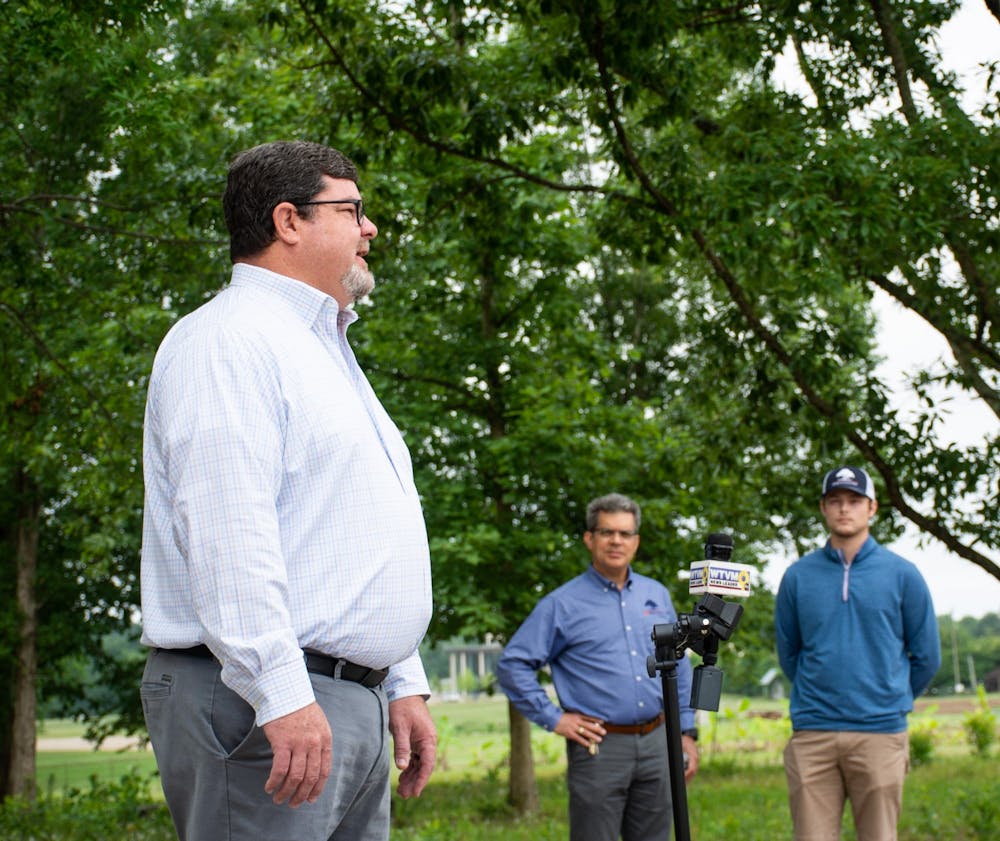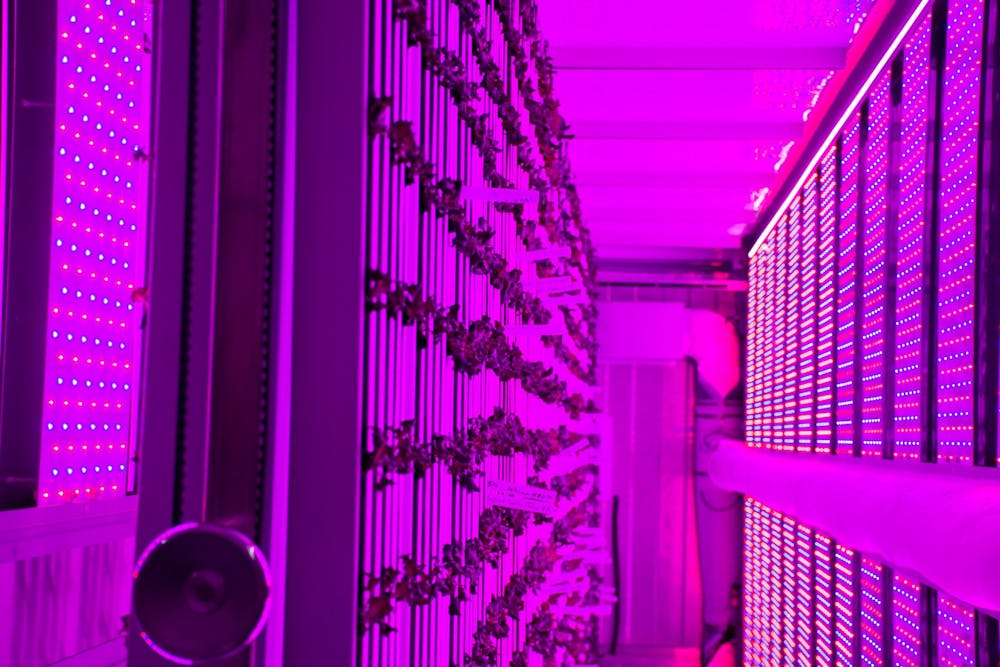On June 10, at 9 a.m., Auburn’s College of Agriculture gave a tour of their new high-tech vertical shipping containers, all the way from Freight Farms in Boston, Massachusetts, now located on Lem Morrison Drive.
Present were Desmond Layne, head of the department of horticulture; Daniel Wells, associate professor of horticulture; Glenn Loughridge, director of campus dining and concessions; and Kyle Hensarling, Master's student in horticulture studying hydroponics and aquaponics.
“What they are is a container — like a shipping container — that’s been retrofitted with the latest technology in indoor growing systems,” Loughridge said. “Basically, it’s like having four farms … We could potentially grow, say, 4,000 heads of lettuce all at the same time.”

Glenn Loughridge, director of campus dining and concessions, plans to use produce from the vertical farms in dining facilities across campus.
Subsequently, each wall has about 1,000 plants. Every wall is outfitted with both red and blue LED lights, which Loughridge said gives them a “space age” look.
“You can think of it as a three-dimensional growing system,” Wells said. “We are able to do that because we can control all of the growth factors: temperature, relative humidity, CO2, water, nutrients and, of course, light.”

Daniel Wells is an associate professor in the College of Agriculture working on the Freight Farms project.
While the containers use power, they are highly water-efficient, with an HVAC system that recovers the majority of the water, which is continually flowing over the plants’ roots, and puts it back into the system. In addition, every time the container door opens and the Alabama humidity sneaks in, water is recovered from the atmosphere.
“It uses about less than 1% of the water you would use to grow the same amount of plants out in normal soil environment,” Loughridge said.
Though the containers have been on campus since April, only one is being fully utilized. It rests at a comfortable 72 degrees and is home to 4,200 plants. There are 16 varieties of lettuce in the vertical farm and two varieties of arugula. In one year, a container should produce the same amount of lettuce that 15 acres of land could produce, Layne said.
These are a part of the “variety trial” for the campus dining chef to assess what works and what does not. The plants will remain in the container for four to five more weeks before heading to campus dining.
The second vertical farm should receive seedlings by the end of next week. This farm will be slightly cooler than its counterpart in order to grow collards, baby kale and Swiss chards. Produce from the containers will be utilized in the food at Tiger Zone in the Village, as well as the new dining facility opening in the fall.
“We have a fabulous partnership with Campus Dining,” Layne said. “Auburn students are growing food for Auburn students.”

Desmond Layne is the head of the department of agriculture and a professor working on the Freight Farms project.
This partnership began over five years ago when Loughridge and Wells created the Auburn Aquaponics Project. Today, fish from this union are still served across campus in Auburn dining facilities. The hope for the vertical farms is to simply be another innovative extension of this partnership.
“In these containers, I had the unique opportunity to lead a team of undergraduate students,” Hensarling said. “With this opportunity, students can lead other students in the future in the horticulture department in an untraditional way of farming.”

Kyle Hensarling is a College of Agriculture student involved in the project.
Vertical farms are just phase one for the College of Agriculture’s plan for the up-and-coming 16-acre Transformation Garden. This new garden is located on the south end of campus, and the college expects to continually receive more state-of-the-art agriculture technology.
“The Transformation Garden is going to be just that,” Loughridge said. “It’s going to be a transformation of our campus food system; it’s going to allow us to become more sustainable in our practices.”
Do you like this story? The Plainsman doesn't accept money from tuition or student fees, and we don't charge a subscription fee. But you can donate to support The Plainsman.





